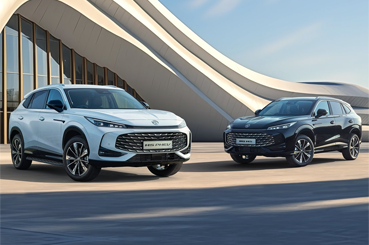Manufacturer Spotlight: Volvo
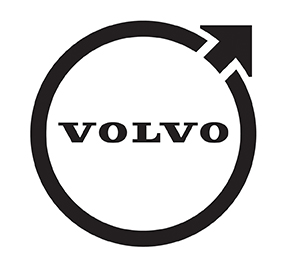
Welcome to our Manufacture Spotlight series, where we delve into the world of automotive excellence. Today, we turn our attention to Volvo, a brand synonymous with safety, reliability, and Scandinavian design elegance.
From its inception to its latest innovations, Volvo has consistently pushed the boundaries of automotive engineering. Let’s explore what sets Volvo apart in the automotive industry.
What Does Volvo Mean?
The name “Volvo” originates from Latin and means “I roll” or “I drive,” perfectly encapsulating the brand’s commitment to producing vehicles that embody the essence of smooth, effortless motion. This connection goes even deeper, as the name predates the car company itself. It was originally trademarked in 1911 by SKF, Volvo’s parent company, for a series of ball bearings – the very components that enable rolling motion!
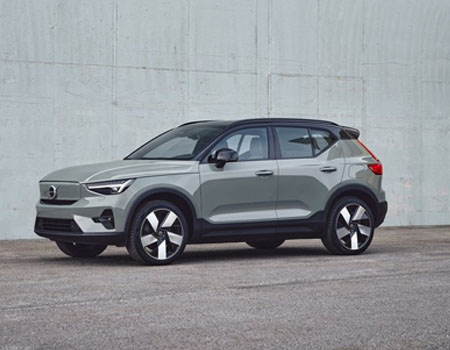
Volvo’s founders understood this heritage and chose the name to reflect their vision of creating cars that provide a superior driving experience. They translate “I roll” into engineering excellence by focusing on innovative features that enhance comfort and performance. Advanced suspension systems and ergonomic design ensure every journey is a pleasure. But Volvo goes beyond just smooth operation.
They are synonymous with safety. Their dedication to creating secure vehicles ties back to the idea of “rolling.” Their cars are designed to “roll” safely and securely, protecting passengers in any situation.
By combining exceptional performance, comfort, and unwavering safety, Volvo lives up to the promise inherent in its name – a brand that delivers a superior driving experience on every roll.
What are Volvos famous for?
Since its inception, Volvo has prioritised safety more than anything else. This commitment goes beyond industry-leading features like collision avoidance and driver assistance systems. It’s ingrained in their very philosophy. Famously, Volvo refused to patent the three-point seatbelt, a life-saving invention, allowing it to be widely adopted and saving countless lives.
Furthermore, Volvo’s dedication to safety extends far beyond simply incorporating reactive features. They have a dedicated accident research team established in 1970. This team has analysed over 43,000 real-world accidents, providing invaluable data that guides their proactive approach. Their vision? “Zero collisions.” They actively research and develop technologies to prevent accidents altogether, not just mitigate damage.
Volvo’s safety philosophy extends beyond their vehicles. They advocate for safer road infrastructure and driver education programs, promoting an integrated approach to reducing traffic accidents.
For example, Volvo’s innovations include the three-point seatbelt (a testament to their philosophy), crumple zones, whiplash protection systems, and advanced driver-assistance systems (ADAS) like City Safety. These innovations have demonstrably reduced fatalities and injuries on the road, solidifying Volvo’s reputation as a safety leader.
Looking ahead, Volvo’s commitment to safety continues with their development of autonomous vehicles. This can be seen as an extension of their mission, aiming to eliminate human error, a major factor in accidents.
While Volvo is known for safety, they haven’t neglected other aspects of the driving experience. Their cars continue to offer a blend of comfort, performance, and style, appealing to drivers who value a well-rounded experience behind the wheel.

Volvo Sustainability
Additionally, recognising that a smooth ride shouldn’t come at the expense of the environment, Volvo is committed to sustainable practices throughout its lifecycle – aiming to have net zero greenhouse gas emissions by 2040. They’re leading the charge in electrification, with ambitious goals to reduce CO2 emissions drastically.
But they don’t stop there. Volvo tackles emissions across its entire supply chain and operations, embracing a circular economy that prioritises recycled materials and responsible waste management. This commitment extends beyond their vehicles; Volvo is actively working to minimise their impact on biodiversity and fostering a future where their cars can truly roll towards a cleaner world.
Where is Volvo From?
Volvo was founded in Gothenburg, Sweden, in 1927. Since its inception, the company has maintained strong ties to its Scandinavian roots, infusing its vehicles with the region’s design principles of simplicity, functionality, and aesthetic appeal.
Sweden’s rich automotive heritage and culture of innovation have significantly influenced Volvo’s development, shaping its identity as a pioneer in safety and quality.
Who Owns Volvo Cars?
Volvo Cars, the automotive manufacturer, currently thrives under the ownership of Geely Holding Group, a Chinese multinational automotive company. Geely acquired Volvo Cars from Ford Motor Company in 2010, marking a new chapter defined by strategic collaboration and growth.
Volvo’s resurgence under Geely has been remarkable. The company has embraced electrification with a bold vision: becoming a fully electric car brand by 2030. This ambition aligns perfectly with Geely’s own focus on sustainable technologies.
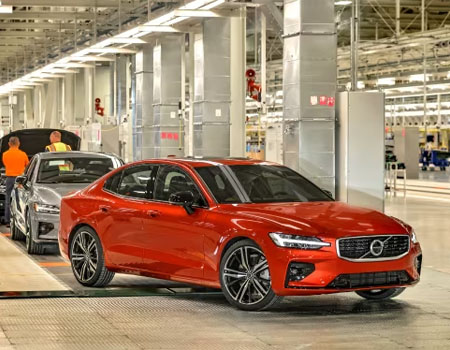
Geely’s resources have been instrumental in Volvo’s global expansion. The collaboration has fostered joint ventures and new production facilities, significantly increasing Volvo’s manufacturing capacity. This acquisition reflects a larger trend of Chinese companies playing an increasingly prominent role in the global automotive industry.
Looking ahead, Volvo, with Geely’s backing, is well-positioned to be a key player in the future of mobility. Their focus on electrification and sustainability positions them to meet the changing demands of the industry. Furthermore, collaboration on technological advancements could pave the way for Volvo’s involvement in autonomous vehicles or innovative car-sharing models.
Volvo’s brand heritage paired with Geely’s resources and vision, drives this partnership for Volvo’s resurgence and promises continued success in the years to come.
Where Are Volvos Made?
Volvo Cars operates manufacturing plants across the globe, ensuring that its vehicles are built to the highest standards of quality and craftsmanship. Some of the key production facilities are located in Sweden, Belgium, China, and the United States.
Each factory adheres to Volvo’s rigorous manufacturing protocols, guaranteeing consistency and precision in every vehicle produced. By strategically distributing production facilities, Volvo can meet the demands of diverse markets while maintaining its commitment to sustainability and efficiency.
Is Polestar Owned by Volvo?
Polestar is a subsidiary of Volvo Cars, renowned for its high-performance electric vehicles. While Polestar shares Volvo’s commitment to safety and innovation, it operates as a separate entity within the Volvo Cars umbrella. Founded initially as an independent racing team in 1996, Polestar carved its niche in the world of motorsport before being acquired by Volvo Cars in 2015. This strategic move leveraged Polestar’s racing pedigree to infuse Volvo’s vehicles with a dose of performance-oriented dynamism.
However, the story doesn’t end there. In 2017, Volvo Cars and Zhejiang Geely Holding Group jointly formed the current Polestar company, specifically dedicated to electric vehicles. This move cemented Polestar’s position as a pioneer in electric mobility. The close collaboration with Volvo allows them to develop innovative technologies and sustainable solutions. They benefit from shared resources and expertise in engineering and safety, while Polestar spearheads the charge towards a fully electric future.
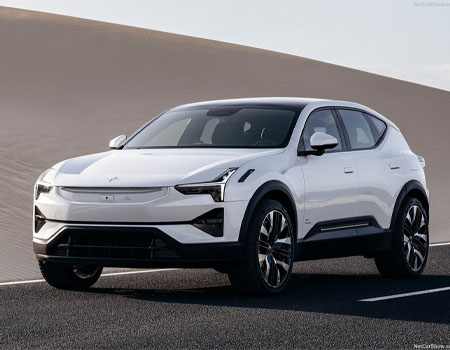
This strategic separation fosters a unique environment. Polestar can be nimble and innovative, pushing the boundaries of electric vehicle design and performance.
At the same time, it maintains a strong connection to Volvo’s established reputation for quality and safety. This combination positions Polestar as a leader in the electric vehicle market, attracting a new generation of environmentally conscious drivers seeking a blend of performance, luxury, and sustainability.
In conclusion, Volvo continues to lead the automotive industry with its unwavering dedication to safety, innovation, and Scandinavian design ethos. From its origins in Sweden to its global presence today, Volvo remains at the forefront of automotive excellence. Whether it’s pioneering new safety technologies or embracing electric mobility through Polestar, Volvo continues to shape the future of driving. Stay tuned for more insights into the world of automotive excellence in our Manufacture Spotlight series.
Blog Comments
To view, comment or reply to comments you must be logged into facebook

